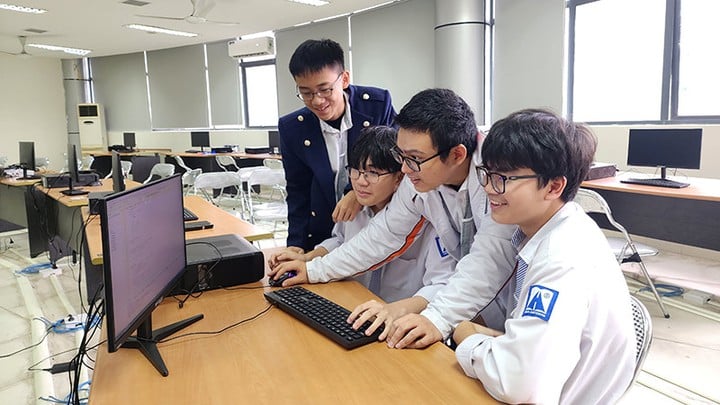
Digital learning hours of students at Hanoi - Amsterdam High School for the Gifted (Hanoi).
From remote classrooms to smart cities
At Binh Khanh Secondary School (Can Gio District, Ho Chi Minh City), the first online lessons were not without some confusion: the connection was unstable, students had to borrow their parents' phones, teachers had to teach and learn how to interact through the screen. But after only a few years, everything has changed.
Now, 100% of the school's teachers can design their own digital learning materials and organize assessments through the LMS (Learning Management System). Students not only learn knowledge but also learn how to apply technology in life, from lesson preparation, group work, to presentations using digital tools.
"Digital transformation has changed the entire way the school operates, making every process, from management, teaching to assessment, more transparent and effective," shared a representative of the Board of Directors.
Models like Binh Khanh are gradually spreading throughout Ho Chi Minh City, where the education sector is promoting the application of technology in all stages, from education management (EMIS) to building smart classrooms, integrating interactive boards, IoT devices and electronic lecture systems.
According to the Ho Chi Minh City Department of Education and Training, the city’s open learning resource library now has thousands of e-lectures, illustrative videos and reference materials shared for free. Teachers are trained in digital skills to master advanced teaching models such as Flipped Classroom or Blended Learning.
Mr. Ho Tan Minh, Chief of Office of the Department of Education and Training of Ho Chi Minh City, commented: "Digital transformation is not just about applying technology, but also about changing thinking, teaching and learning methods so that learners are truly the center of education."
Since 2018, the Ministry has built a general education database, directly connected to the National Population Database, authenticating information for more than 23 million teachers and students.
In 2022, the HEMIS system for higher education was launched, digitizing all data on learners, lecturers, training programs and scientific publications. To date, 95 administrative procedures in the industry have been provided online on the National Public Service Portal, from high school graduation exam registration, university admission to foreign diploma verification.
Mr. To Hong Nam, Deputy Director of the Department of Science, Technology and Information, said that the Ministry is preparing to deploy digital transcripts and digital diplomas from the 2025-2026 school year, while developing platforms for open learning and a shared digital learning resource repository.
One of the highlights is the "Digital Education for All" platform, developed by Hanoi University of Science and Technology in collaboration with the Ministry of Education and Training. Dr. Pham Huy Hoang, Director of the Center for Technology and Digital Transformation Solutions in Education, said: "The goal of the platform is to help everyone - regardless of age or level - to learn, receive certificates and participate equally in the digital learning space."
After more than half a year of launching, the platform has 400 free courses, attracting nearly 20,000 learners nationwide. For many older people, this is an opportunity to learn from scratch – from basic computer skills to foreign languages and professional knowledge.
Teachers - the core of digital transformation
At Hanoi College of Technology, Distinguished Teacher, Dr. Pham Xuan Khanh said that the school has divided digital transformation into two phases: Digitizing the management and training process, then expanding system integration, training digital capacity for staff, teachers and students. "We regularly organize training sessions, invite domestic and foreign experts to share experiences. The most important thing is that each teacher must be a pioneer in learning and mastering technology," Mr. Khanh emphasized.
Not only at the university level, this spirit of innovation is spreading to the secondary level.
At Hanoi - Amsterdam High School for the Gifted, the model "Students innovate with AI" is being implemented. Dr. Hoang Thu Ha - Vice Principal of the school shared: "Students not only learn how to use AI, but also learn how to create new tools. We want students to become technology creators, not just users."
Small projects such as chatbot programming, learning application design or environmental data analysis have helped students approach practical technology, nurturing scientific thinking and the desire for innovation right from school.
Despite many positive results, the digital transformation process in education still faces many difficulties: technology infrastructure is not yet synchronized, digital skills between teachers and students are still different, and cybersecurity risks are still latent.
Mr. Nguyen Bao Quoc, Deputy Director of the Department of Education and Training of Ho Chi Minh City, said that it is necessary to prioritize investment in synchronous technology infrastructure for all schools, expand the smart school model and apply AI and Big Data in management. "The ultimate goal is to personalize the learning journey, so that each student has the opportunity to develop according to their abilities," he said.
Deputy Minister of Education and Training Nguyen Van Phuc also affirmed that digital transformation in education is a "revolution in thinking and action". He emphasized: "Digital transformation is not only to modernize education, but also to enable all people, especially vulnerable groups, to access knowledge. Digital transformation is to ensure that no one is left behind"./.
Source: https://mst.gov.vn/giao-duc-so-nen-tang-kien-tao-tuong-lai-hoc-tap-moi-197251113085304279.htm


![[Photo] Prime Minister Pham Minh Chinh meets with representatives of outstanding teachers](https://vphoto.vietnam.vn/thumb/1200x675/vietnam/resource/IMAGE/2025/11/15/1763215934276_dsc-0578-jpg.webp)


![[Photo] Panorama of the 2025 Community Action Awards Final Round](https://vphoto.vietnam.vn/thumb/1200x675/vietnam/resource/IMAGE/2025/11/15/1763206932975_chi-7868-jpg.webp)

![[Photo] General Secretary To Lam receives Vice President of Luxshare-ICT Group (China)](https://vphoto.vietnam.vn/thumb/1200x675/vietnam/resource/IMAGE/2025/11/15/1763211137119_a1-bnd-7809-8939-jpg.webp)





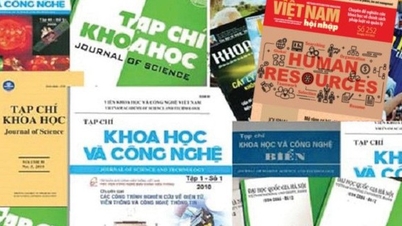
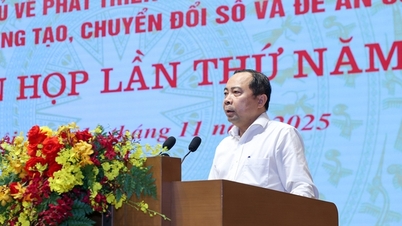




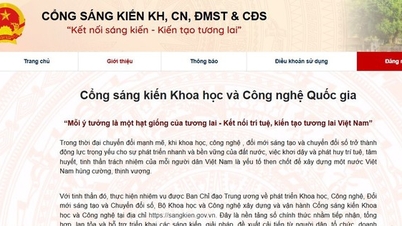
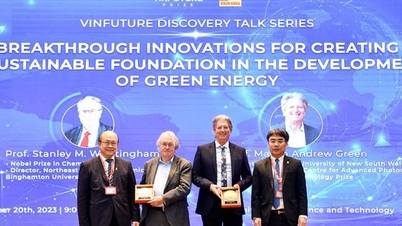
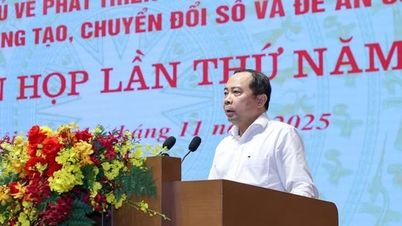







































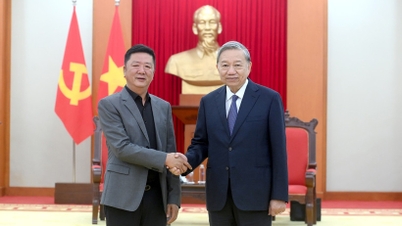

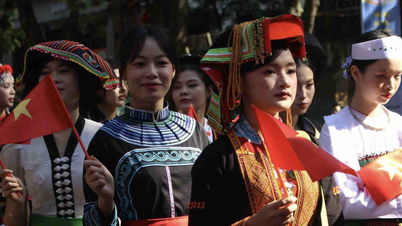

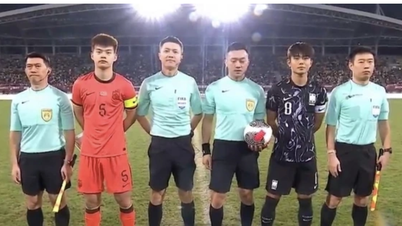

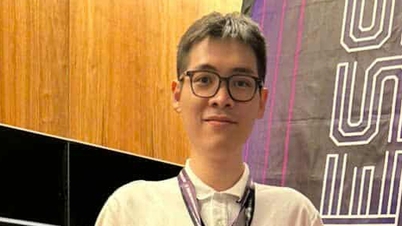

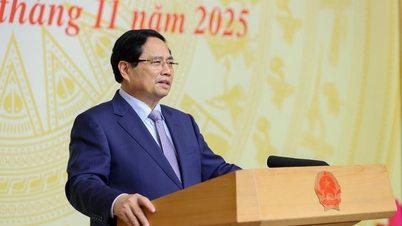
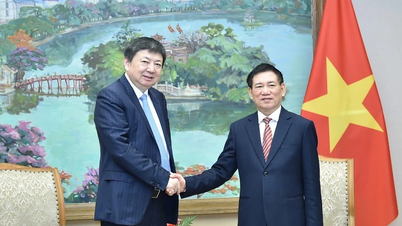







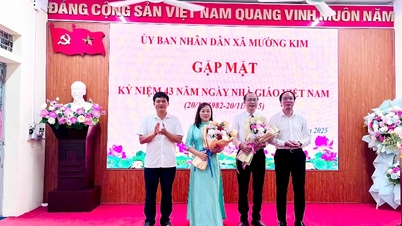













Comment (0)